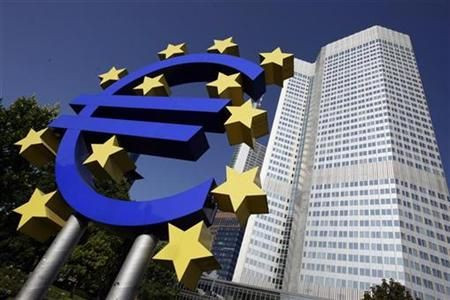How to Play it: Fund Triage as Europe Leaves Intensive Care

European government officials and financial institutions are starting to make dramatic steps needed to manage their way through a debt crisis that threatens to drag the world economy into recession.
Financial advisers and asset managers also are adjusting -- but not rushing. The market surged Monday on relief that a solution may be close at hand. Still, prior hopes have been dashed before and any recovery will likely be painful and protracted.
Here are ideas on how to make the shift:
NOT RUSHING TO BUY EUROPE
Stock valuations in Europe are attractive based on price-to-earnings ratios, and dividends are also a lure, said Herb Morgan, chief investment officer and CEO at Efficient Market Advisors.
Still, there is enough uncertainty that he is underweight in European investments and not ready to rush in immediately.
Whatever the strategic allocations are (in Europe), investors should cut them in half, with an eye toward increasing net weight over the next six weeks, Morgan said.
When it's time to invest, Morgan likes the SPDR Euro Stoxx 50 ETF because it is highly liquid and has a 4 plus percent dividend. He also likes the Vanguard Europe Pacific ETF which rose to more than $30 a share Monday afternoon, and has an almost 3 percent dividend yield, he said.
Among single-country ETFs, Russia and Austria could represent a chance for longer-term gains, said another strategist.
The Market Vectors Russia ETF is selling extremely low, at 3.39 times earnings and 3.04 times earnings for next year, and the SPDR S&P Emerging Europe ETF is at 3.8 times expected earnings for this year and 3.5 times for next year, said Byron Green, president of Green Investment Management.
EMERGING MARKETS 'SNAP-BACK'
Emerging markets tend to fall as a group whenever there is trouble anywhere -- and usually much harder. For investors, a European rebound may offer a way the asset class at a discount.
Exchange traded funds of emerging economies such as the iShares MSCI Brazil Index ETF and South Korea Index Fund ETF are selling at bargain levels -- 6.87 times earnings and at 6.7 times next year's earnings, respectively. They fell to huge losses recently.
There are significant opportunities with very low prices and more certainty to develop in the coming months, said
Green, whose company manages $175 million in assets.
Green said that Brazil and Asia could benefit from interest rate cuts in response to decreasing inflation.
EURO DEBT, PLAYING IT SAFE
In terms of fixed income, the only game in town right now is to buy German government bonds, and the time will come when we have gotten all we can of that safe-haven asset, said Art Steinmetz, chief investment officer at OppenheimerFunds with more than $177 billion in assets under management.
What happens next? Steinmetz said fund managers will be looking for higher-yielding alternatives when conditions improve.
Covered bonds in Europe do offer value, he said, explaining that these debt securities are backed by cash flows from mortgages or public sector loans and issued by banks and secured by mortgage portfolios.
STRONG DOLLAR SURGE ENDING?
The dollar's recent surge could end as Europe's crisis abates. So investors should be on the lookout for dollar assets that are now overpriced relative to the rest of the world.
The U.S. dollar has appreciated against the euro 5 percent so far in September because global investors are more concerned about the risk in the euro currency this month.
The dollar going up is not a vote of confidence in the United States, said Jerome Booth, head of research at the $50 billion Ashmore Investment Management.
That creates an opportunity for asset allocators to dump some of their dollars, dump some of their bad investments and get to the better opportunities in emerging markets at slightly cheaper prices than were available last week, Booth said.
This is the opportunity to get out of dollars.
© Copyright Thomson Reuters 2024. All rights reserved.





















